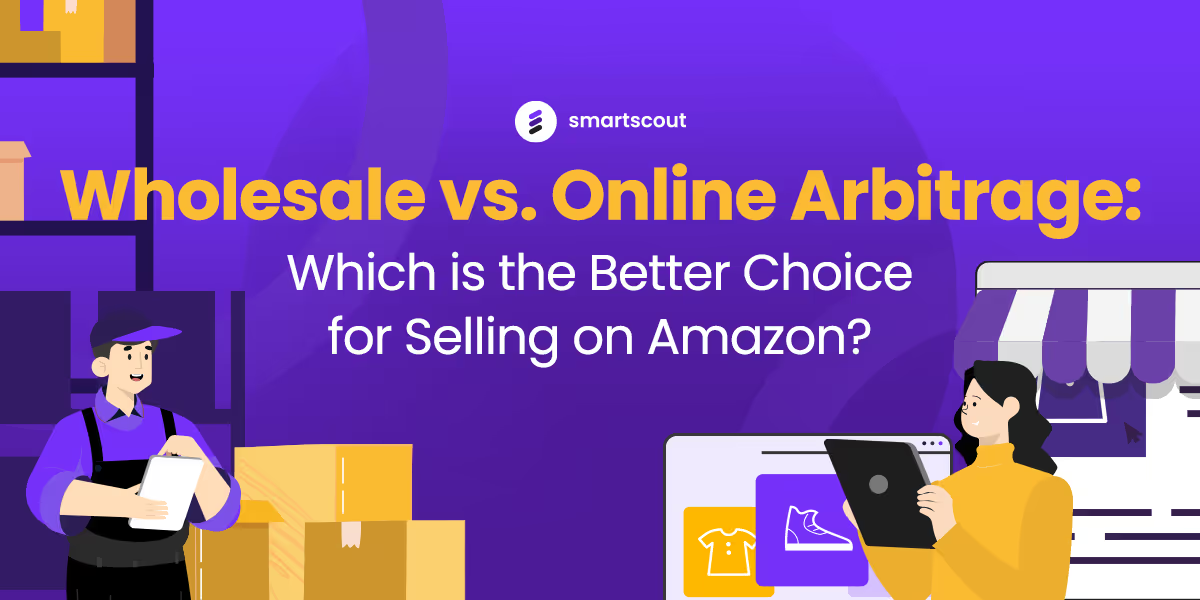When it comes to selling on Amazon, two popular strategies are Wholesale and Online Arbitrage. Both methods have their merits and challenges, but which one is the better choice for you?
Let's explore the differences between Wholesale and Online Arbitrage, weigh their pros and cons, and help you decide which strategy is best suited for your Amazon business.
Wholesale: Building Long-Term Relationships with Suppliers
Wholesale involves purchasing products directly from manufacturers or authorized distributors at a discounted price and reselling them on Amazon for a profit. This strategy relies on building long-term relationships with suppliers to secure a steady supply of products at competitive prices.
Pros of Wholesale:
- Scalability: Wholesale allows you to grow your business by purchasing large quantities of products at once, leading to higher profit margins and more efficient inventory management.
- Sustainability: By working directly with suppliers, you can establish a stable supply chain that provides a continuous stream of products to sell on Amazon.
- Brand Consistency: Since you're sourcing products directly from the manufacturer, you can ensure the quality and authenticity of the items you sell.
Cons of Wholesale:
- Higher Initial Investment: Wholesale typically requires a larger upfront investment to purchase inventory in bulk.
- Competition: You may face stiff competition from other Amazon sellers who source the same products from the same suppliers.
- Relationship Building: Establishing and maintaining strong relationships with suppliers can be time-consuming and challenging.
Online Arbitrage: Capitalizing on Price Differences
Online Arbitrage involves purchasing products from online retailers at a lower price and reselling them on Amazon for a profit. This strategy takes advantage of price discrepancies between different online marketplaces and relies on a keen eye for deals and discounts.
Pros of Online Arbitrage:
- Lower Initial Investment: Online Arbitrage generally requires a smaller upfront investment, as you can start by purchasing a few items and gradually build your inventory.
- Diverse Product Selection: Online Arbitrage allows you to sell a wide variety of products from different brands and categories, increasing the chances of finding profitable opportunities.
- Flexibility: This strategy offers flexibility in terms of sourcing products, as you can purchase items from multiple online retailers rather than being tied to a single supplier.
Cons of Online Arbitrage:
- Unsustainability: Online Arbitrage is dependent on finding deals and discounts, which may not always be available, making it challenging to maintain a consistent product supply.
- Time-Consuming: Scouring the internet for deals and managing multiple purchases from different retailers can be time-consuming and labor-intensive.
- Potential Quality Issues: Since you're not sourcing products directly from the manufacturer, you may encounter issues with product quality, authenticity, or even counterfeit items.
Conclusion:
Which Strategy is Right for You?
The choice between Wholesale and Online Arbitrage largely depends on your goals, resources, and preferences. If you're looking for a scalable, sustainable business model and are willing to invest time in building relationships with suppliers, Wholesale may be the better option. On the other hand, if you prefer a more flexible approach with a lower initial investment and enjoy the thrill of hunting for deals, Online Arbitrage might be a better fit.
Ultimately, the success of your Amazon business will depend on your dedication, hard work, and ability to adapt to the ever-changing e-commerce landscape. By understanding the pros and cons of Wholesale and Online Arbitrage, you can make an informed decision and choose the strategy that best aligns with your vision for success.










